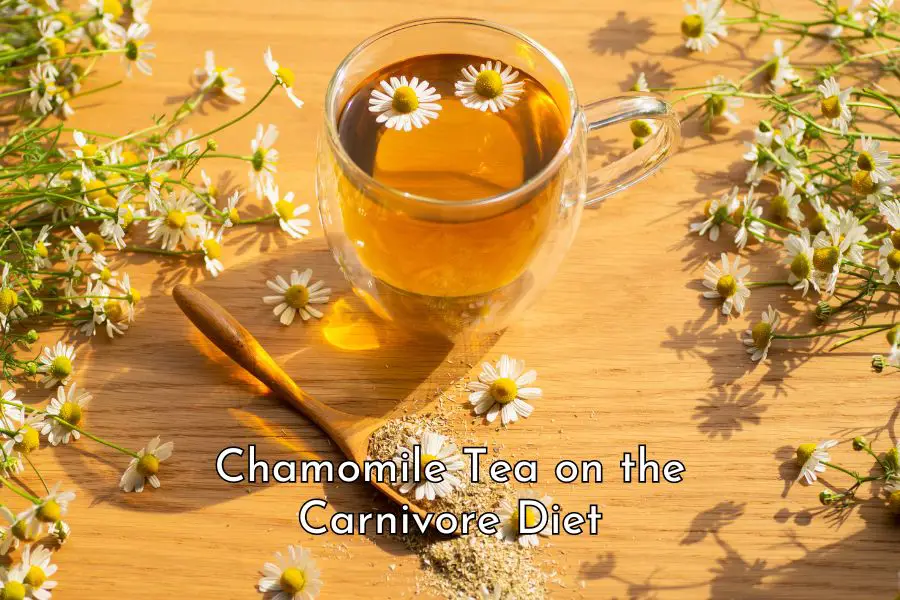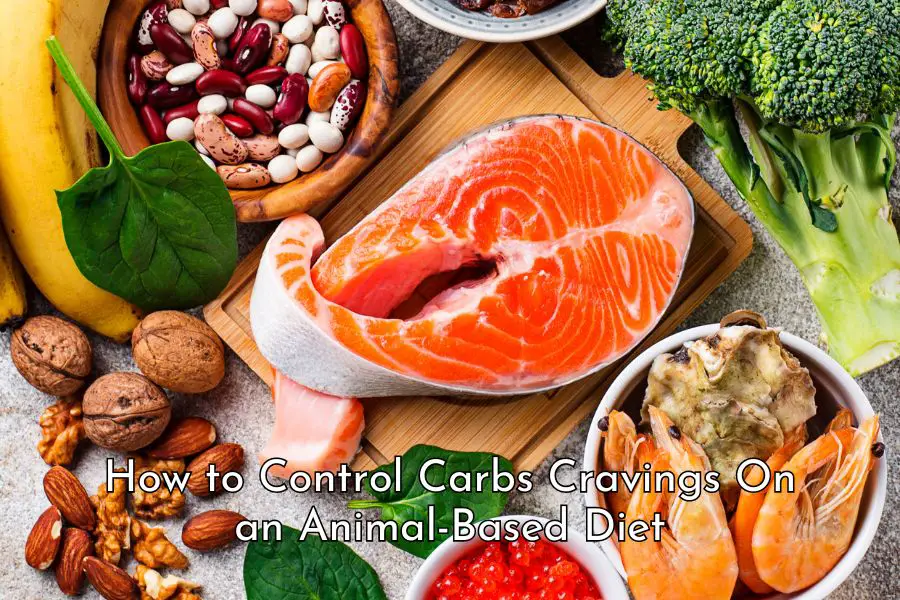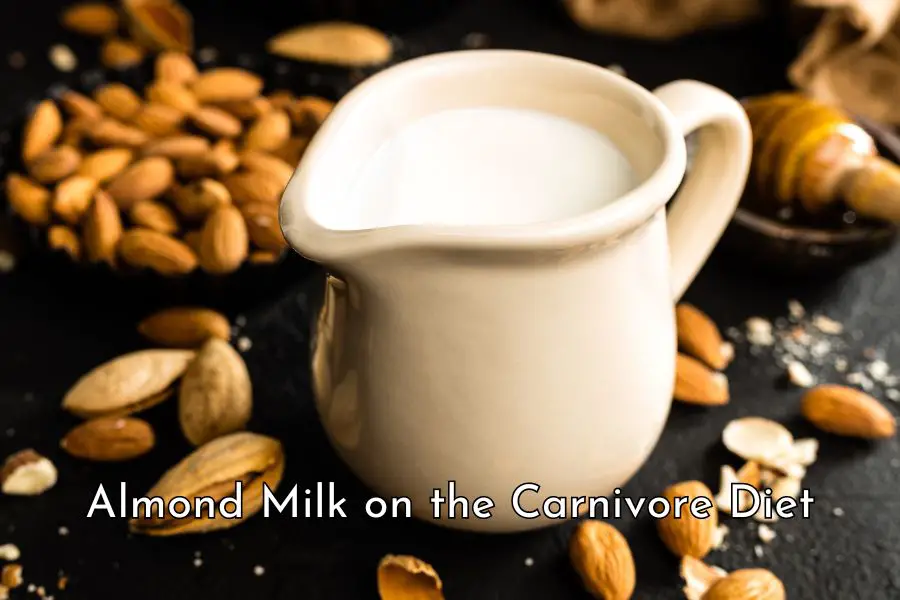Protein supplement is very popular amongst health and fitness enthusiasts. If you are one of those and have recently switched to the carnivore diet, you may wonder if you should continue to use protein powder on this diet.
In this post, I will argue that protein supplement is absolutely unnecessary on the carnivore diet for the following reasons:
- There is already an ample amount of high-quality proteins on the carnivore diet and there is no need to supplement your diet with processed proteins
- Animal-based whole food is a much better source of protein than protein powder because it comes with many other essential nutrients and beneficial bioactive compounds
- Protein powder may contain artificial flavors, artificial sweeteners, and other additives
- Protein powder is highly processed and its consumption is inconsistent with our ancestors’ diet
- Milk protein, in particular, A1 casein protein has been controversially linked to a number of health problems
- Overall protein intake, not protein supplement and timing, is the strongest predictor of muscle growth.
Below we will first look at what is in protein powder – unsurprisingly, most protein powder on the market contains many things that aren’t protein.
We will then examine in detail the six reasons why you don’t need to supplement with protein powder on the carnivore diet.
What Is in Protein Powder?
The main ingredient in protein powder is processed protein which can come from animal sources or plant sources.
Animal-based protein powder most commonly comes from milk (whey or casein protein) but can also come from eggs and meat.
Plant-based protein powder can come from many sources such as soybeans, rice, peas, hemp, chia, lentils, and beans.
Plant-based protein powder has become increasingly popular due to the vegan movement and is projected to grow at even a greater rate than that of the overall protein supplement industry. [1]
If you have ever taken powder shakes made from plain protein powder before, you will understand why most protein powders contain added flavorings, sugar, artificial sweeteners, and thickeners.
Plain protein shakes taste horrible and it’s hard to keep them down. You will need to blend pure protein powder with fruits, honey, yogurt, milk, or ice cream to make it drinkable.
As a result, protein powder manufacturers usually have to add sugar, natural sweeteners (e.g. stevia, erythritol), artificial sweeteners (e.g. acesulfame potassium, sucralose), natural flavors, artificial flavors, salt, vegetable oils, thickeners (e.g. corn starch, tapioca starch, rice flour, gum) to improve the taste.
Sometimes, probiotics, vitamins, minerals, and enzymes are also added to make protein powder appear more healthy.
If you haven’t been looking closely at what’s in the protein powder that you’re buying, you might be in for a shock.
Below are a few examples of what may be in a protein powder.
| Brand | Ingredient |
|---|---|
| Raw Grass Fed Whey | 100% Grass Fed Whey Protein Powder |
| Levels (Grass Fed Whey Protein) | Whey Protein Concentrate, Sunflower Lecithin |
| Granite (Complete Spectrum Protein) | Protein Matrix (Whey Protein Concentrate, Micellar Casein, Whey Protein Isolate, Peanut Flour, Beef Protein Isolate, Egg White Protein), Natural Flavors, Salt, Xantham Gum, Protease Enzymes, Sucralose |
| Optimum Nutrition Whey Gold Standard (100% Whey Protein Powder, Double Rich Chocolate) | Protein Blend (Whey Protein Isolate, Whey Protein Concentrate, Hydrolyzed Whey Protein), Cocoa Powder (Processed with Alkali), Sunflower and/or Soy Lecithin, Natural and Artificial Flavor, Acesulfame Potassium. |
| BPI Sports ISO HD (100% Whey Protein Isolate and Hydrolysate Powder, Peanut Butter Candy Bar) | Fast absorption protein matrix (milk protein isolate, whey protein hydrolysate, whey protein isolate), natural and artificial flavors, gluten-free cookie pieces (rice flour, tapioca starch, palm oil, cocoa processed with alkali, corn starch, salt, chocolate liquor, natural flavor, sodium bicarbonate, soy lecithin), salt, gum blend (cellulose gum, xanthan gum, carrageenan), soy and/or sunflower lecithin, sucralose, and acesulfame potassium. |
| Garden of Life (Organic Protein Powder, Vanilla) | Organic Protein Blend: Organic Pea Protein, Organic Sprouted Brown Rice Protein, Organic Amaranth Sprout, Organic Buckwheat Sprout, Organic Millet Sprout, Organic Cracked Wall Chlorella, Organic Quinoa Sprout, Organic Chia Seed Sprout, Organic Garbanzo Bean Sprout, Organic Lentil Sprout, Organic Adzuki Bean Sprout, Organic Flax Seed Sprout, Organic Sunflower Seed Sprout, Organic Pumpkin Seed Sprout, Organic Sesame Seed Sprout, Organic Flavor Blend: (Organic Vanilla Flavors, Organic Erythritol, Organic Stevia Extract (leaf), Sea Salt), Organic Guar Gum, Organic Carob Bean Gum, Probiotic & Enzyme Blend: Lipase, Protease, Aspergillopepsin, beta-Glucanase, Cellulase, Bromelain, Phytase, Lactase, Papain, Peptidase, Pectinase, Hemicellulase, Xylanase, [Lactobacillus acidophilus La-14, Lactobacillus plantarum LP-115, Lactobacillus bulgaricus Lb-87] (3 Billion CFU) |
| OWYN (Plant-Based Protein Shake, Dark Chocolate, Vegan) | Water, OWYN Protein Blend (Pea Protein, Organic Pumpkin Seed Protein, Organic Flax Oil), Vegetable Fiber, Organic Cane Sugar, Sunflower Oil, Cocoa Powder, Sunflower Lecithin, Natural Flavors, Himalayan Pink Salt, Guar Gum, Greens Blend (Broccoli, Spinach, Kale), Monk Fruit Extract |
Why You Shouldn’t Use Protein Supplement on the Carnivore Diet?
Protein supplement is absolutely unnecessary on the carnivore diet primarily because there is already an ample amount of high-quality protein accompanied by an abundance of essential nutrients and health-promoting bioactive compounds in animal-sourced food.
1. There is already plenty of high-quality protein on the carnivore diet
Animal-sourced foods are a great source of high-quality proteins which are complete proteins that are highly bio-available.
For example, a 100-gram serving of lean beef, lamb, pork, or chicken will deliver 21g, 20g, 17g, and 23g respectively. This is roughly equivalent to one serving of protein powder which typically delivers around 20 to 25 grams of protein. [2]
Eating a small steak, however, is a lot more delicious and nutritious than drinking a protein shake with a lot of additives that you are not sure about the impact they may have on your health.
Furthermore, on the carnivore diet, because you will dine on just animal-based food, you will have no problem meeting your body’s protein needs.
With the Institute of Medicine’s RDA at 0.8g/kg, a 150-pound person (68 kg) just needs 54 grams of protein a day. One pound of meat already delivers around 100 grams of protein which is double the RDA. [3]
Therefore, your concern, if any, should be whether you are getting enough fat because meat at the supermarket or even at the butcher is usually too lean: its fat is trimmed off to meet the demands of the general population who fears fat.
If you eat too much lean meat and not enough fat, you won’t feel very well. Too high protein intake can lead to protein poisoning or “the rabbit starvation syndrome”. This is because your liver has a limited capacity to deaminate proteins and produce urea for the excretion of excess nitrogen. [4]
When Vilhjalmur Stefansson, an Arctic explorer and ethnologist, was put on a one-year meat-only diet as an experiment in 1928 at Bellevue Hospital, they first fed him a very high protein diet which accounted for 44% of his total calorie intake.
On the third day of this lean meat diet, he developed nausea and diarrhea. When the protein intake was reduced to around 20% and fat intake was increased to around 80% (in terms of calories), nausea and diarrhea disappeared. [5]
2. Animal-sourced food is a much better source of protein than protein powder
In addition to providing good quality proteins, animal-source food is also the best source for other essential nutrients and beneficial bioactive compounds.
For example, just one small serving of beef (100g) delivers not just high-quality protein but a good amount of many essential vitamins and minerals as well: [6]
- Protein: 21g (43% of DV)
- Selenium: 37% of DV
- Niacin (B3): 33% of DV
- Vitamin B6: 30% of DV
- Zinc: 26% of DV
- Phosphorous: 20% of DV
- Vitamin B12: 17% of DV
- Potassium: 10% of DV
- Iron: 9% of DV
- Riboflavin (B2): 6% of DV
- Pantothenic acid (B5): 6% of DV
- Magnesium: 5% of DV
- Copper: 4% of DV
- Thiamin (B1): 4% of DV
- Folate: 3% of DV.
In addition, real food is also a great source of many beneficial bioactive compounds such as L-carnitine, coenzyme Q10, taurine, creatine, conjugated linoleic acid, and glutathione.
While these nutrients are not considered essential because we can survive without them, they have many health benefits. [7]
For example, L-carnitine plays a critical role in fat metabolism. CoQ10 involves in energy production and is a very important antioxidant with the potential to prevent or treat many health conditions. Taurine plays an important role in bile acid conjugation and the functioning of the nervous system, the eyes, and the immune system. [8, 9, 10]
Animal-based food is the best source of those beneficial bioactive compounds. They are also free of plant-antinutrients or natural pesticides that can be found in abundance in plant food. [11]
| Bioactive Compounds | Food | Amount (mg/100g) |
|---|---|---|
| L-carnitine: | Beef steak | 165.0 |
| Veal shoulder | 78.2 | |
| Lambchop | 40.5 | |
| Avocado | 8.1 | |
| Coenzyme Q10: | Ox liver | 3.92 |
| Beef | 3.65 | |
| Pig liver | 2.27 | |
| Rye bread | 0.47 | |
| Taurine: | Chicken – dark meat | 169 |
| Turkey – dark meat | 306 | |
| Oysters | 396 | |
| Mussels | 655 | |
| Nuts | – | |
| Bread | – | |
| Glutathione (GSH): | Beef steak | 12.3 |
| Pork chop | 18.9 | |
| Chicken breast | 6.5 | |
| Spinach | 11.4 | |
| Potatoes | 11.0 |
3. Protein powder may contain many additives
Most protein powders on the market contain substances other than protein powder such as artificial flavors, artificial sweeteners, sugar, vegetable oils, and thickeners to make them palatable.
In addition, protein powders can be contaminated by toxins as well.
A study done in 2018 on toxins in protein powders by a non-profit organization called the Clean Label Project found an alarming level of contamination in both organic and non-organic powders. [12]
Clean Label Project purchased and tested 134 of the top-selling protein powder products according to Nielsen and the Amazon.com bestseller list.
They found that “protein powders tested … had an array of positive results for detectable levels of arsenic, cadmium, lead, mercury, BPA, mycotoxins, pesticides, and residual solvents“.
In particular:
- 75% of protein powders had measurable levels of lead and 33% of products exceeded at least one federal or state regulation set for safety
- 55% of protein powders had BPA, an endocrine disruptor
- 53 of the top-selling products contained elevated levels of BPA, lead, mercury, cadmium, and arsenic
- One protein powder product contained 25 times the allowed regulatory limit of BPA in just one serving
- Certified organic products had over 2x the level of heavy metals (e.g. lead, arsenic, and cadmium) as non-organic products
- Plant-based protein powders containing the highest levels of contamination
- 75% of plant-based samples tested positive for lead
- Plant-based protein powders were the most contaminated while egg and whey-based protein powders were the cleanest.
4. A1 casein protein is controversial
The two main types of milk proteins commonly used in making protein powders are casein and whey and casein has been linked to a number of health problems.
Casein protein has two variants, A1 and A2. The only difference between A1 and A2 is a difference in the 67th amino acid in the chain.
Most modern farmed cows produce A1 casein while certain cow breeds (Charolais, Guernsey, Jersey, and Limousin), buffalo, goats, and sheep produce A2 casein.
In humans, digestion of A1 casein, but not the alternative A2 casein, releases beta-casomorphin-7, which activates μ-opioid receptors expressed throughout the gastrointestinal tract and body. A1 casein has been linked to a number of health problems such as type 1 diabetes, celiac disease, and some other autoimmune conditions in some observational studies. [13, 14, 15, 16]
A1 casein is thought to be the reason why some people have problems with cows’ milk but are okay with goat and sheep milk which contain mostly A2 casein. [17]
However, a comprehensive investigation into A1 and A2 protein controversy by Truswell (2005) found that “there is no convincing or even probable evidence that the A1 β-casein of cow milk has any adverse effect in humans“. There is no evidence that A1 casein is a factor causing type 1 diabetes or heart disease. [18]
The European Food Safety Authority also published a comprehensive 107-page scientific review in 2009 which concluded that available evidence does not indicate A1 casein consumption is the cause of any non-communicable disease. [19]
In light of this controversy, even if you don’t have a dairy sensitivity, in my opinion, it is best to consume casein protein powder very sparingly. Whole and fresh meat is still the best source of protein and other nutrients.
5. Protein powder is highly processed
Protein powder is an ultra-processed food.
Let’s look at how whey, casein, and plant-based protein powders are made.
Whey is a by-product of the cheese-making process. Liquid whey is the leftover after the curd is formed. It then goes through a purification and drying process to remove fats, carbohydrates and water. Whey protein isolate is made with further filtration to achieve a higher concentration of protein.
Casein is made from milk similar to the way cheese is made. Enzymes or chemicals are used to make milk coagulate and form casein curds. The curds are then filtered and dried to produce casein protein powder.
Plant-based protein powders are made from soy, rice, peas, hemp, chia, quinoa, pumpkin seeds, potatoes, maize, etc. [20]
A number of methods can be used to remove carbohydrates, fats, fiber, and water and extract proteins from plant-based foods. These may involve the use of solvents (e.g. hexane), ultrafiltration using a combination of mechanical processes and chemicals, or an enzyme-assisted process using commercial proteases. [21, 22, 23]
You don’t need to be a scientist to realize that protein powders are all ultra-processed and are not even remotely resembling the real food that our ancestors had thrived on for millions of years.
There is time and place for when ultra-processed food is needed, but if you have access to real and fresh food, it’s a no-brainer that you should opt for the real food anytime.
6. Overall protein intake, not protein supplement, is the strongest predictor of muscle hypertrophy
With the current market size of around US$ 20 billion per annum and growing, protein powder is undoubtedly very popular amongst fitness enthusiasts because they believe that protein supplement is needed to support muscle growth. [24, 25]
However, a meta-analysis by Schoenfeld et al (2013) found no significant difference between subjects with and without protein supplements in terms of muscle strength or hypertrophy improvements. [26]
The authors of the study conducted a multi-level meta-regression of randomized controlled trials that included over a thousand subjects.
In their full meta-regression model, no significant differences were found between treatment and control for strength or hypertrophy.
The authors concluded that “total protein intake was the strongest predictor” of muscle hypertrophy and that their findings “refute the commonly held belief that the timing of protein intake in and around a training session is critical to muscular adaptations and indicate that consuming adequate protein in combination with resistance exercise is the key factor for maximizing muscle protein accretion“.
The authors were of the view that the “perceived hypertrophic benefits seen in timing studies” were likely to be due to an increase in total protein consumption rather than the temporal aspects of consumption.
As long as protein intake is adequate during muscle overload, the adaptations in muscle growth and function will not be influenced by protein supplementation.
Reidy et al (2017)
If You Do Use Protein Powder on the Carnivore Diet …
If you still want to use protein powders on the carnivore diet for convenience, cost, or whatever reasons, the best ones to use are animal-sourced like whey, casein, egg, and beef.
Animal-based proteins are less processed and less contaminated.
As mentioned above, of the 134 top-selling protein powder products tested by the Clean Label Project, egg and whey-based protein powders were found to be the cleanest, whereas plant-based protein powders, even the organic ones, were found to be the most contaminated. [27]
Animal-based proteins also have higher digestibility scores (which measures protein quality based on human essential amino acid requirements and our ability to digest it) compared to plant-based proteins. [28, 29]
| Protein Type | Protein Digestibility Corrected Amino Acid Score |
|---|---|
| Beef | 0.92 |
| Eggs | 1.00 |
| Milk | 1.00 |
| Casein | 1.00 |
| Whey protein | 1.00 |
| Soy protein | 1.00 |
| Peanuts | 0.52 |
| Black beans | 0.75 |
| Wheat gluten | 0.25 |
| Rice | 0.50 |
| Pea | 0.59 |
Conclusion
Protein supplement is not necessary on the carnivore diet. Animal-based food can provide you with an abundance of protein as well as all essential nutrients that your body needs.
Protein supplement is generally perceived as beneficial in supporting muscle growth. However, this is likely to be a result of an increase in total protein intake rather than the timing effect and the overall total protein intake is the main determinant of muscle hypertrophy.
Other posts you might be interested in:
Disclaimer: The information in this post is for reference purposes only and not intended to constitute or replace professional medical advice. Please consult a qualified medical professional before making any changes to your diet or lifestyle.
Photo credit: Bradley Gossett





